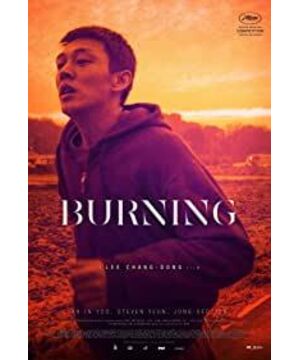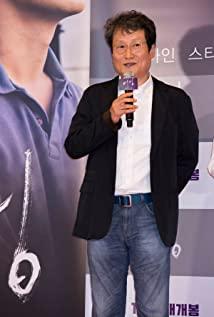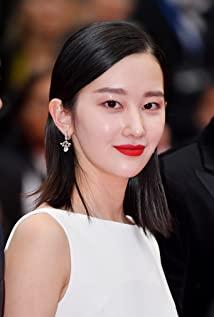This year's Cannes, the favorite is Lee Cangdong's "Burning". It meets all my expectations of a good movie: it has a definite theme and an ambiguous extension, a popular story with a blank aftertaste, a literary core support, and a unique charm of light and shadow. It is agile and elegant, steady and powerful, like a damp match rubbing repeatedly on the matchbox, and finally burns out a raging flame.
Li Cangdong's "Burning" is adapted from Haruki Murakami's short story "The Burning Warehouse". Zhong Xiu, the deliveryman starred by Liu Yaren, ran into her childhood neighbor Emi at the mall promotion booth. Emi quickly brought him back to herself. And ask Zhong Xiu to help her take care of the cat when she travels to Africa. After returning from the trip, Huimei fell in love with her newly-acquainted "Gatsby" boyfriend Ben. Ben invited Zhong Xiu as a guest and brought Huimei to visit Zhong Xiu, telling Zhong Xiu that he has a special hobby of burning a "plastic greenhouse" every two months. After this visit, Hui Mei disappeared soon.
The first half of the movie almost faithfully restored Haruki Murakami’s novel, but William Faulkner’s "Burning Stables" was added to the background: the relationship between Zhong Xiu and his father continued the design of "Burning Stables". Certainly, in the seemingly unrelated secondary line, he tried to save the consequences of his father's emotional loss of control, and he was eventually ignited by anger. Haruki Murakami's contribution is to describe the spiritual emptiness of contemporary urbanites, while Fogner's "Burning Horse Stable" implies a reflection on class differences. Based on the thinking of two writers, as a public intellectual, Li Cangdong, "Burning" not only presents the nihility shared by the contemporary urban population, but also does not give up the discussion and questioning of the class differences that cause young people's anger.
Haruki Murakami’s barn and Faulkner’s stable were changed to Greenhouse, a plastic greenhouse commonly used in farmhouses. When talking about her hobbies in the movie, Ben pointed out that there are thousands of plastic greenhouses in South Korea, and no one cares about which one to burn. Correspondingly, when Huimei disappeared, her family was very concerned about those who had gone bankrupt. Huimei turned a deaf ear to her and didn't want to see her again unless she paid off her credit card. This change takes into account the uselessness of the barn and the class attribute of the stables. At the same time, it extends the urban perspective of the original novel to the countryside, showing a more three-dimensional social level, allowing his work to be independent of regionality. East Asia and the whole world are universal.
The film seems to be a popular story of a woman choosing between true love and wealth, but the central axis of the story is not Huimei, but Zhong Xiu who is watching. For Zhong Xiu, Huimei and Ben seem to be remote and mysterious. He just observes from a distance how wealth distinguishes classes and influences people's behavior. Li Cangdong used the mouth of Huimei to put forward the two states of "little hunger" and "big hunger" for people. Material scarcity is small hunger, while spiritual emptiness is big hunger. Wealth separates two classes, but poor. Anxiety and inferiority, wealth and arrogance and conspicuousness lead to the same nihility. Wealth also alienates people into "great hunger", so that the tumult between the two classes appears to be a carrier of nothingness.
Compared with literary works, movies usually have no advantages. It is an old saying that third-rate novels are suitable for film adaptation, which means: for readers, literature is a broadened state, and readers will add their own imagination and interpretation when reading text. The film is a narrowing process, and clearly supplemented audiovisual information usually limits the audience's imagination. But "Burning" crossed the golden line of literature and film, and rarely ran to the front of literature.
In "Burning", Li Cangdong completes the deliberately ambiguous story in Haruki Murakami. The life experience of the three characters and the emotions between the characters can form a popular story even if the "over interpretation" is given up. But what’s interesting is that through the lens, he creates another layer of mystery and ambiguity. It leaves many obvious gaps in the process of the complete narrative. They are not like flat blanks, they are more like It is a three-dimensional air hole. Whether it is the "Schrödinger's Cat" that exists and does not exist, or the "Rashomon's Well" that has fallen through, these plots and the seemingly non-existent hints in the lines together form an infinite variety of narrative possibilities and orientations. A rich reading level.
The final link between life and literature is the identity of Zhong Xiu's character. Zhong Xiu studied literary creation at university, and he didn't write any stories until the end of the film. But after Zhong Xiu questioned Ben Emi's whereabouts in the cafe, the director gave Zhong Xiu a shot of writing. In fact, the film started from the variation of Haruki Murakami's "Burn the Warehouse". Is the follow-up to Zhong Xiu's creation? "He" helped Li Cangdong fill up his imagination and burned the nameless anger and desire. In the face of life’s dilemma, does the film explore the relationship between literature or art and life through “false appearances”? Is artistic creation an outlet for creators to eliminate “great hunger”? This kind of interpretation is a bit super-classical, but it is the poetry of this movie that makes me have this kind of association.
We ignore the ambition of "Burning" in the text to compete with literary works. Movies also give full play to the advantages of audiovisual. The greatest strength of movies over literature is actually the presentation of Yoshimitsu's lens. After many years, people will definitely forget the story. The details, but you must remember the dreamy "burning dance". Li Cangdong spent a week capturing the most beautiful sunset, and the actors he discovered contributed the best "marijuana performance". In this drama, she completed the "burning" multi-layered expression like a magical stroke. This dance is both daily In the logic of narrative, it is outside the rational thinking of the viewer. It is obscene but not obscene, sad but not hurt, warm and desolate, it not only captures desire, but also far above desire. This scene belongs to the greatness and sublime of the movie.
What makes people feel excited is the end of the film. The fire that finally burns is a flame of revenge and liberates human beings from rolling each other. In all the interpretations and comments, as audiences, we can find the rub shoulders that understand and move the thousands of bifurcations in the movie "Burning". It is still in the creators’ dialogue. I saw a quote from the screenwriter that made me stop: The stars in the night sky flickered because they knew that their light was faintly disappearing, so they jumped up the great hunger. Dance. "Burning" is Li Cangdong's breathtaking dance.
View more about Burning reviews











